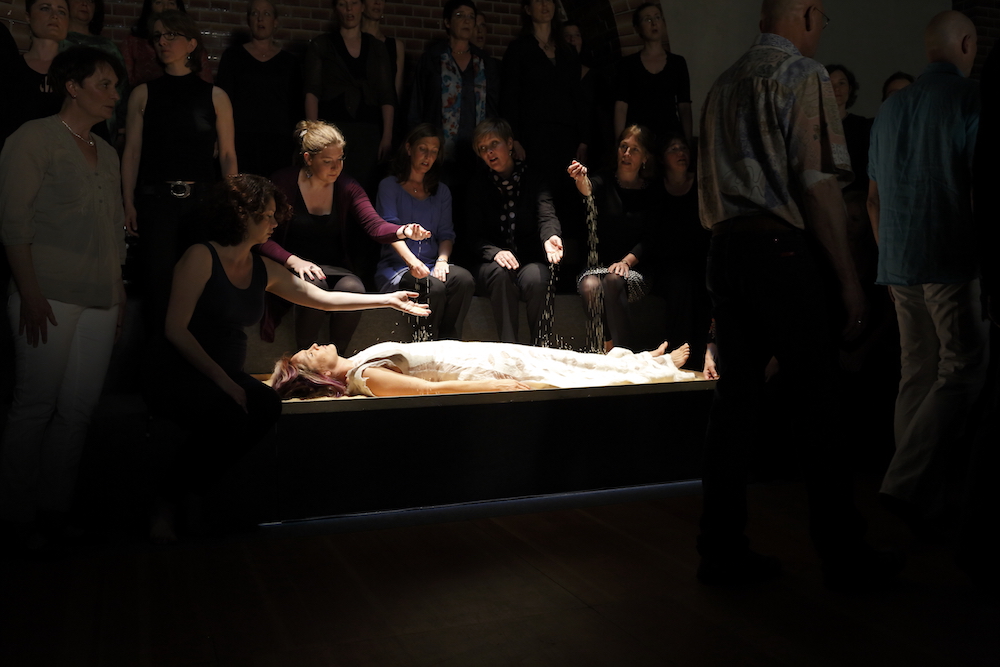Johannes Brahms told the music director of Bremen Cathedral, Carl Reinthaler, that he would have gladly called his German Requiem “Ein menschliches Requiem” – a human Requiem. It is this name, which Brahms also mentioned in a letter to Clara Schumann, that German playwright Jochen Sandig seized upon for his innovative performance of the work with the Rundfunkchor Berlin, which comes to Australia for the Adelaide Festival in March.
In spite of the nationalist overtones that might be read into a title like Ein deutsches Requiem (Brahms himself seemed uneasy with such associations, composing the work in Vienna against the backdrop of the 1866 Austro-Prussian war), the name is as much a reference to language as nationality – it differentiates the work from the Latin Requiem Masses of the Catholic Church, the mighty Requiems of Mozart and Verdi.
 Human Requiem. Photo © Matthias Heyde
Human Requiem. Photo © Matthias Heyde
“It’s a piece that belongs to the whole world,” Sandig tells me over the phone from New York. “It’s not exclusive for a German community or even a Christian community. It’s a piece that is written for humankind, and that’s why this title, I think, fits.”
Brahms began composing what...










Comments
Log in to join the conversation.